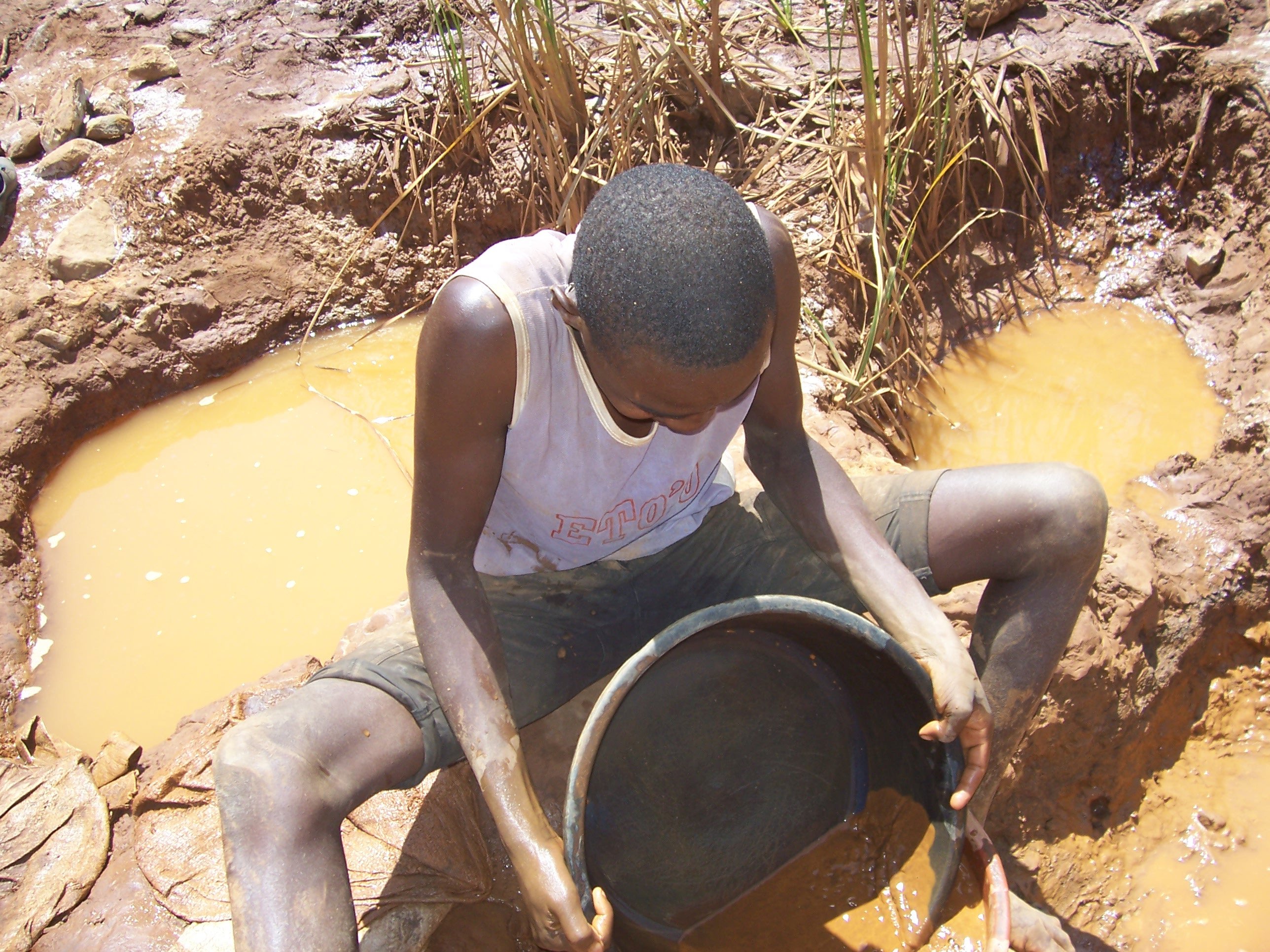The report, Global Mercury Assessment 2013, released in the Kenyan capital, Nairobi, on 10 January, reveals that emissions of the toxic metal from artisanal gold mining have doubled since 2005, attributable to rising gold prices that have led to increased gold mining.
"This report is a combination of scientific evidence that mercury poses a significant risk to human life, and particularly as a result of the contamination that happens through the food chain," Achim Steiner, executive director of UNEP, said.
Some of the negative health effects of mercury include damage to the central nervous system, thyroid, kidneys, lungs, immune system and eyes. Exposure to mercury poses a direct threat to the health of the 10-15 million people directly involved in small-scale gold mining.
Contaminating food
According to the report, an estimated 260 tons of mercury previously held in the soil are being released into rivers and lakes globally.
Artisanal gold mining, in which mercury is used to separate metal from ore, and coal burning for energy production are the biggest contributors to global mercury emissions. In 2010, artisanal mining accounted for 37 percent of the world’s mercury emissions. Other contributors to global mercury emissions are consumer waste, cement production and oil refining.
"In many developing nations such as Kenya, artisanal gold mining occurs along water sources such as streams and rivers, and the mercury deposits are in turn washed into larger water bodies like lakes," Richard Mwendandu, the director of multilateral environmental agreements at Kenya's Ministry of Mineral Resources and Environment, told IRIN.
The report noted that "the majority of human exposure to mercury, and the health risk that comes with mercury exposure, is from consumption of marine foods".
"Growing use of coal to produce energy in developing countries, together with artisanal mining, make Africa and parts of Asia particularly vulnerable to the effects of mercury," added UNEP’s Steiner.
Alternatives
The report calls on governments to ensure regulatory frameworks and incentives to promote the transition to viable, safe and commercial alternatives. It also urges better monitoring of mercury emissions and the compilation of data to better understand the risks posed to humans and wildlife.
UNEP say it has, through its Global Mercury Partnership scheme, set a goal to reduce demand for mercury-containing thermometers and blood pressure devices by 70 percent by 2017.
A conference in Geneva between 13 and 18 January will aim to draw up a global, legally binding treaty to minimize the risk of human and environmental exposure to mercury.
"When we are successful in creating this treaty, it will give national governments an easy time in dealing with the problem of mercury within the context of global backing," Steiner told IRIN.
ko/kr/rz
This article was produced by IRIN News while it was part of the United Nations Office for the Coordination of Humanitarian Affairs. Please send queries on copyright or liability to the UN. For more information: https://shop.un.org/rights-permissions





